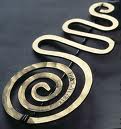
If you live anywhere near Grand Rapids, MI, I suggest you hot foot it down to the Grand Rapids Art Museum to see the Calder Jewelry exhibit that will be on display for a few more weeks.
You don’t have to be a fashionista to marvel at this exhibit.
For the most part, the jewelry could be called Unwearable Art, to be enjoyed and appreciated like Calder’s sculptures or mobiles.
American artist, Alexander Calder (1898-1976) is best known for his mobiles, paintings and bold red and black outdoor sculptures like the one situated on the cleverly named Calder Plaza in the center of Grand Rapids.
Until recently, his jewelry was less well known.
I was fortunate enough to meander through the exhibit in the big white modernist box of a museum in the center of downtown Grand Rapids with my friend Peggy, a former art teacher and artist in her own right.
I learned that Calder created almost 2,000 pieces of jewelry in his lifetime, rarely for commercial output. He made them almost always as gifts for his wife, family and friends or as ways to work out sculpture issues.
His first pieces were fashioned for his sister’s dolls out of discarded telephone wires left in the streets. Later he continued this practice of scrounging for materials, incorporating found objects like stones from the beach or broken bottles or glass into his baubles.

Others were designed for avant garde women of the day—women whose personalities and personas were big enough to carry off the dramatic forms like Peggy Gugenhiem, Lois Nevelson and Georgia O’keefe. If you attend the exhibit you will see large photos of some of these women adorned with stunning Calder pieces.
He created breastplates, necklaces, bracelets, rings and dangling earrings. I was drawn to the crown like tiara’s. I could only think of Cher and how they might accompany her outrageous outfits. Perfect.
During World War II he made some income on the jewelry. The story is that Calder would pack up a box of jewelry and send off to a female patron who would have a “Tupperware Party” of sorts, selling them and sending the money to Calder who needed a second source of income during this difficult time.
For the most part I loved the pieces in the exhibit even though Peggy and I had a hard time visualizing some of them being worn. They are as modern today in feel as they were in the 1930s and 1940s. We liked the many African and Celtic symbols.
Calder wasn’t a jeweler, making links or welding things. He simply took wire and made stuff with it. He hammered the wire on an anvil, flattening and shaping it, then squiggled it into leaves, circles and lots of spirals.
I wish I could have met Calder. Sounds like he had a great sense of humor. For example, in a clip from a 1950s TV program, an interviewer asked how the artist knew when project was finished.
“When it’s dinner time,” was Calder’s laughing answer.
I’ll think o f this story every time I look at a piece of his art and smile.
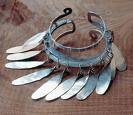
The exhibit at the Grand Rapids Art Museum continues until April 18, 2010.

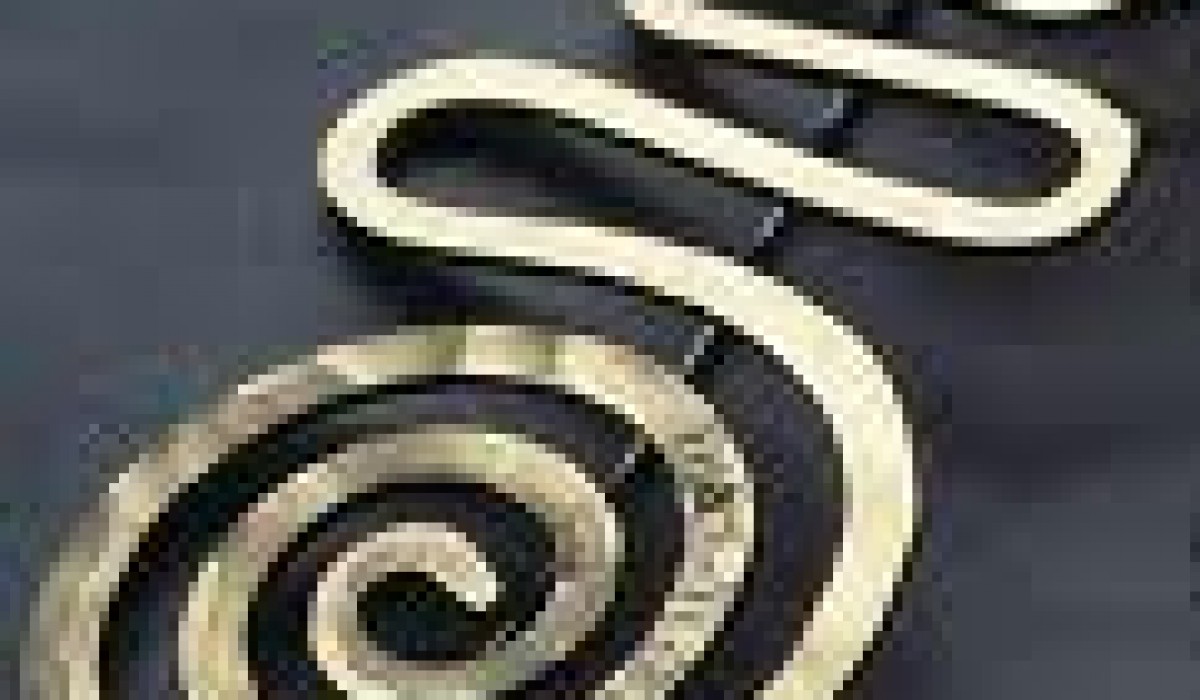

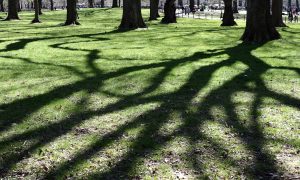
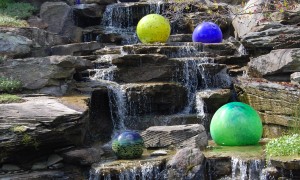

Comments
3 Commentschrislipjournal
Mar 30, 2010Sounds interesting! Thanks for the heads-up. We’re UpNorth, so maybe we’ll come down for a look.
Rob Hanson at Chrislip Journal
smithsj
Mar 30, 2010Wonderful. Remember Tuesdays are free at the GRAM. If you are interested in art, do check out my post on Chicago Institute of Art Modern Wing. Click on Chicago on right hand column of the blog. Enjoy .
Tina Bain
Mar 31, 2010Sounds wonderful! I will make a point of seeing it. Thanks for sharing.